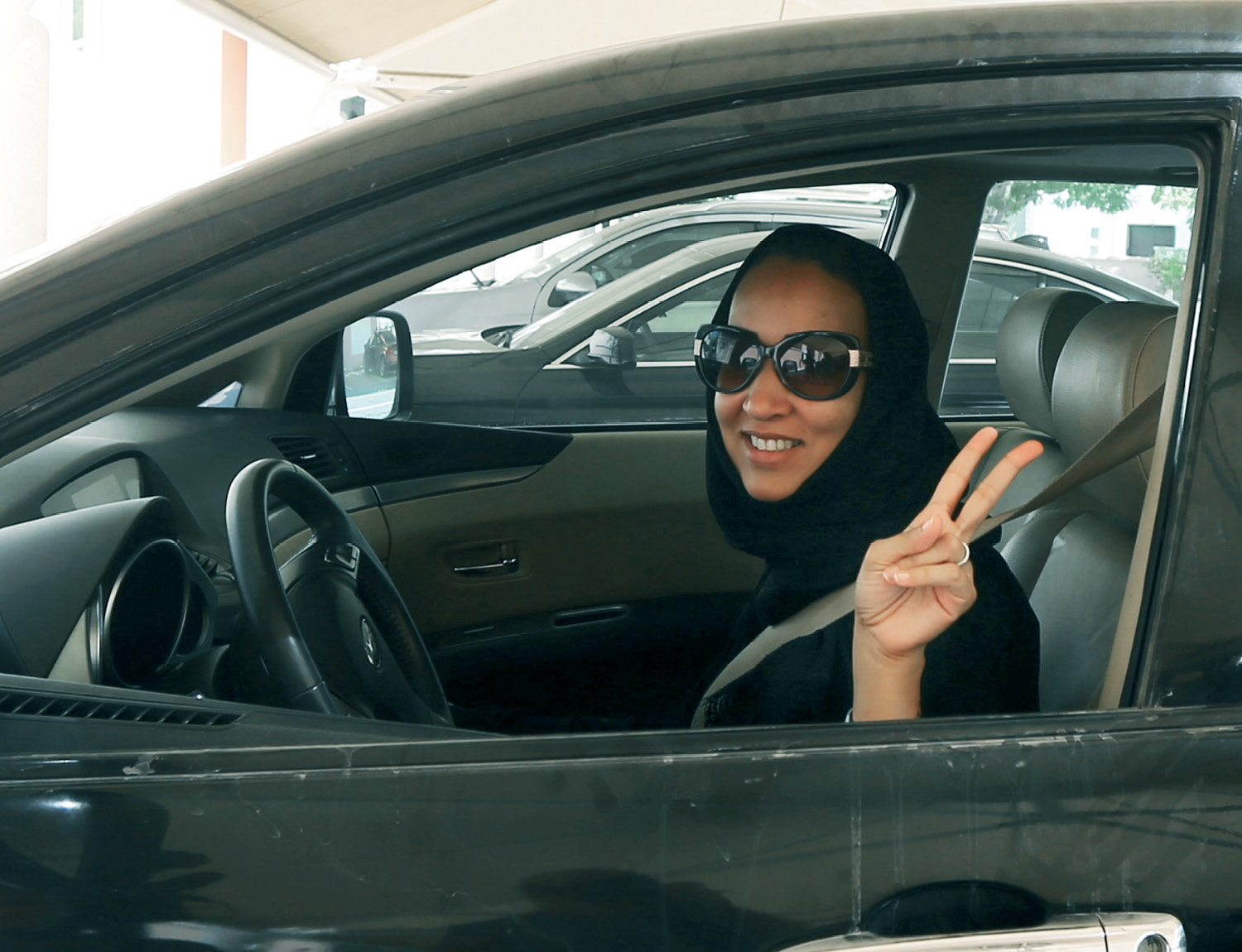Manal al-Sharif

Hillary
In Saudi Arabia in 2011, it wasn’t technically illegal for women to drive, but it was forbidden by Saudi custom, and that ban was enforced by the Saudi religious police. So even though Manal al-Sharif was thirty-two years old, and even though she had a car and knew how to drive, she couldn’t. “Saudi women rely on drivers, usually foreign men, some of whom have never taken a driving test or had any kind of professional instruction to ferry them from place to place,” she would later explain. “We are at their mercy.”
One evening, she found herself walking along the side of the road, trying and failing to find a taxi to take her home after a doctor’s appointment. Men harassed her from their cars; one followed her for so long she was scared for her safety. “Why do I have to be humiliated?” she started asking herself. “Why can’t I drive when I have a car and a license? Why do I have to ask my colleagues to give me a ride, or my brother, or look for a driver to drive my own car?” Simply raising those questions was an act of defiance.
In school in the 1980s, Manal had been, as she put it, “brought up to follow the rules and listen to the man.” At twenty-five, she got married, then had a son. Her husband was controlling and violent; after he beat her, she got a divorce. She went back to work as a cybersecurity engineer, and was sent by her employer to the United States, where she saw what seemed like a different world. She could open a bank account, go where she wanted, and get behind the wheel of a car. She learned the rules of the road and got her driver’s license. For Manal, driving was a path to economic opportunity. It made it possible for her to shop for groceries, run errands, and go to the doctor. She longed to have that same freedom in her own country.
“Exercise your rights. Never take them for granted. That’s the day they’re taken away from you. Living in a democracy is not a privilege. Living in a democracy is a huge responsibility. If you have a voice, honor it and use it.”
—MANAL AL-SHARIF
Back in Saudi Arabia, Manal al-Sharif captured the world’s attention in May 2011 with a brave act of civil disobedience: She filmed herself driving and posted the video on YouTube and Facebook. In twenty-four hours, the video had 700,000 views. But then, at two a.m., the secret police showed up at her house while her five-year-old son slept. They arrested her, and charged her with “driving while female.” She was held in a cockroach-infested jail for nine days. After a massive outcry in Saudi Arabia and around the world, she was released on the condition that she refrain from driving or speaking to the media. Instead, at the height of the Arab Spring protests, she launched the Women2Drive campaign, organizing others to join her in a day of action.
Manal was condemned for her activism; some even suggested she was a foreign spy. Her brother, who had been in the passenger seat while she filmed herself driving, was subjected to so much harassment that his family was forced to leave the country. Manal was pressured to resign from her job. She lost custody of her son and left Saudi Arabia. But she refused to be silenced.
As secretary of state, I was moved by Manal’s courage, and the courage of the women who stood with her. At a press conference in June 2011, I publicly declared the United States’ support for lifting the ban in Saudi Arabia. “What these women are doing is brave and what they are seeking is right,” I said. “We have raised this issue at the highest level of the Saudi government. We’ve made clear our views that women everywhere, including women in the Kingdom, have the right to make decisions about their lives and their futures.” When another group of women protested the ban again on October 26, 2013, some opponents of lifting the ban pointed to the date—my birthday—as evidence that the protests had been organized by the United States. They hadn’t, of course. This was not about the United States; it was about the women of Saudi Arabia.
In 2017, Manal wrote a book about her journey to become what she called an “accidental activist”: Daring to Drive: A Saudi Woman’s Awakening. In 2018, in part because of Manal’s persistence, Saudi Arabia lifted the “unofficial” ban on women drivers. When Manal heard the news, she cried tears of joy. “Saudi women will be free not only to drive their own cars but also to be the drivers of their own lives,” she said at the time. Then she learned she couldn’t go home to celebrate the victory; women activists were being detained and imprisoned with little to no explanation. “The recent arrests dilute and tarnish the progress that has been made in lifting the ban,” she wrote in the Washington Post. “The activists were arrested despite their love for Saudi Arabia—for in an absolute monarchy, dissidents are the true patriots.”
There is still a long road ahead, but Manal’s willingness to risk so much to demand freedom and opportunity should inspire women everywhere.